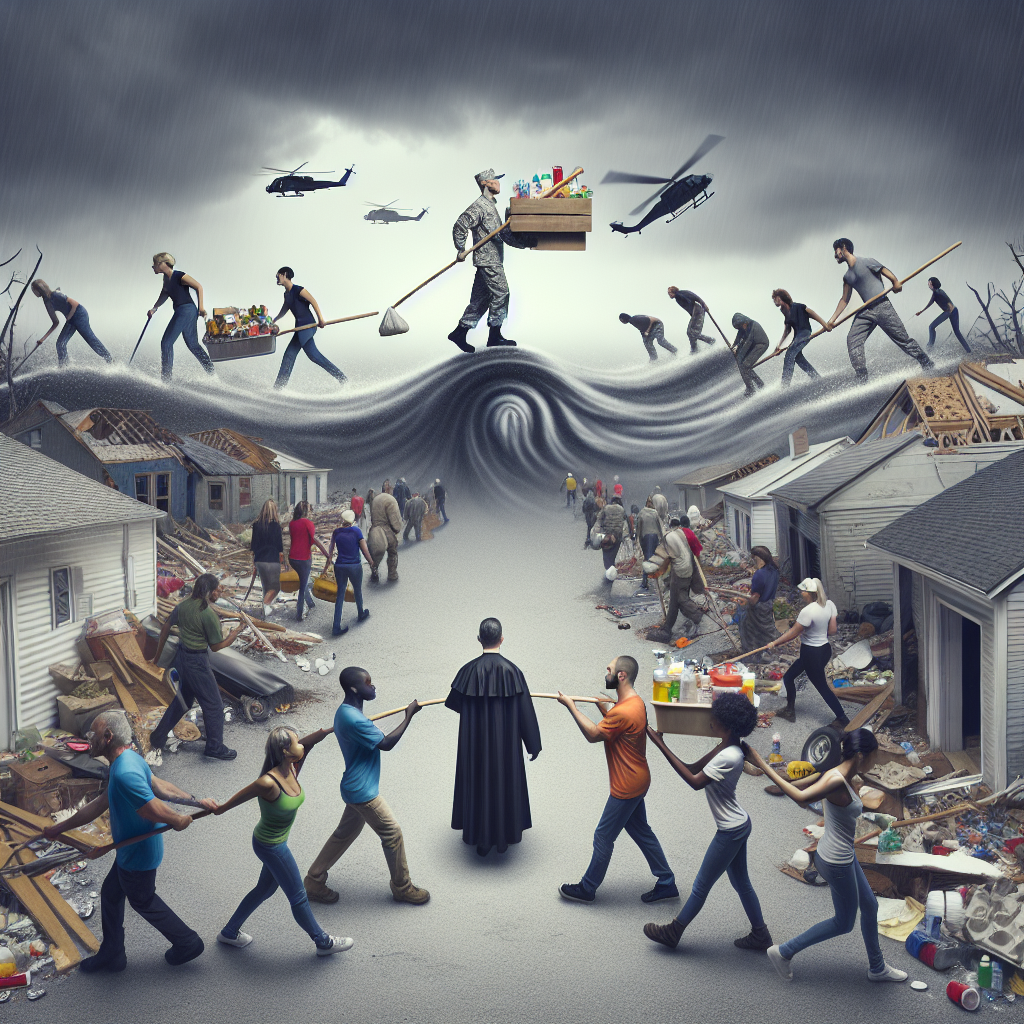In the aftermath of Hurricane Helene, private helicopter pilots undertook independent search and rescue missions to assist those affected by the disaster. Rather than grateful recognition, these volunteer efforts were met with hostility from government officials, who threatened to arrest pilots rather than accepting their aid. An illustrative case involved a pilot who, after rescuing an individual left stranded by the storm, was warned against returning to the storm-damaged area to rescue another stranded person. This hostile government response raises important questions about the role of private citizens during emergencies and the bureaucratic impediments that can hinder timely rescue efforts.
The narrative gained more attention through a video shared by comedian and political commentator Jimmy Dore, featuring Jonathan Howard from the Florida State Guard and the nonprofit Aerial Recovery. In his account, Howard highlighted how volunteers played a critical role in saving an 11-day-old baby, only for the government to take credit for the rescue efforts, overshadowing the contributions of private pilots. Howard’s observations revealed a stark contrast between the number of private helicopters—about forty—and the meager presence of military helicopters—only two—engaged in the search and rescue efforts. This discrepancy raises further concerns about the government’s priorities and the effectiveness of its emergency response strategies.
Compounding the challenges faced by those affected by Hurricane Helene were the government’s foreign aid commitments, particularly substantial military support directed towards Ukraine and Israel. The redirection of resources and personnel, such as the deployment of over 700 members of the Tennessee National Guard to the Middle East while locals were in dire need following the hurricane, illustrates a troubling trend. South Carolina Senator Lindsey Graham’s impassioned pleas for increased aid to Israel, rather than focusing on the domestic issues caused by the hurricane, exemplifies a political landscape where foreign aid takes precedence over local disaster relief, drawing criticism from constituents who feel abandoned.
As Congress prepares to address disaster relief in a forthcoming “lame duck” session, the conversation shifts toward the financial implications of such aid. Conservative Republicans propose making budget cuts to offset any additional spending, yet many of these “fiscal conservatives” still support increasing military funding. This tension highlights a pervasive irony: while they argue against raising the national debt for disaster relief, they simultaneously endorse endless military expenditures, effectively prioritizing defense spending over urgent humanitarian needs domestically. The conflict between these spending philosophies raises profound questions about the efficacy and responsibility of government in disaster response.
Personal experiences also shed light on the complicated relationship between government aid and disaster recovery. A former Congress member recounted how, despite voting against federal disaster aid in their district, they received backlash from constituents who initially demanded government intervention. Over time, as constituents navigated through bureaucratic hurdles in seeking recovery, many expressed a growing preference for a system where the government refrains from imposing its “help.” This suggests a clear frustration with the inefficiencies of government aid, highlighting a potential shift in sentiment toward private initiatives and community-led recovery efforts.
Prominent figures, like Gary Heavin, founder of the Curves fitness chain and a pro-liberty advocate, exemplify the spirit of volunteerism amidst these government limitations. Heavin’s commitment to helping those in need without relying on government support aligns with libertarian principles emphasizing voluntary action over coercion. Contrary to the misconception that libertarianism equates to selfishness, it encourages compassionate, voluntary efforts to assist others. The implications of constitutional libertarianism stand in stark contrast to authoritarian practices, which often lead to societal issues such as poverty and chaos. By fostering personal responsibility and voluntary support systems, societies can cultivate a spirit of prosperity and compassion that aids recovery efforts from natural disasters without the interference of imposing bureaucracies.

